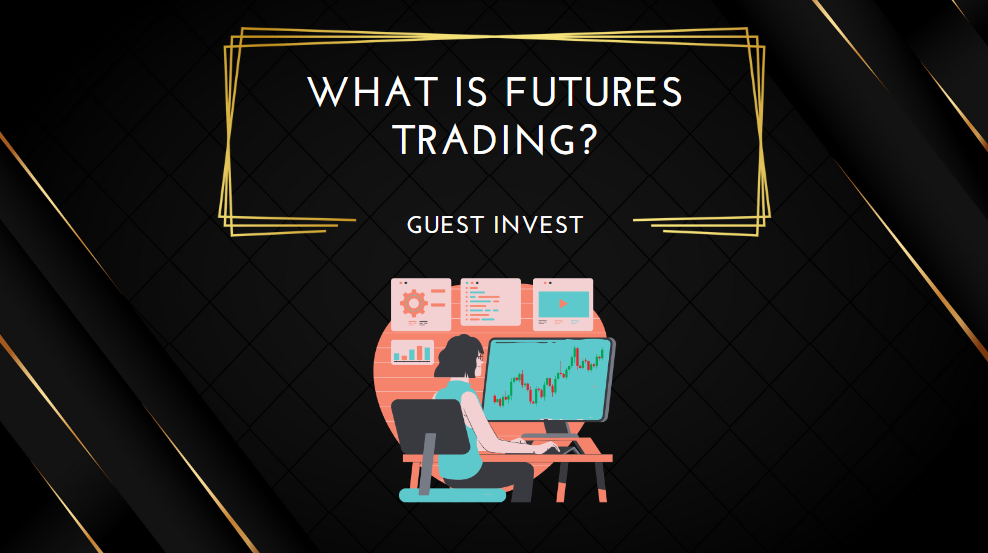Understanding Future Prop Firms: A Comprehensive Guide
What is a Prop Firm and How Does it Benefit Traders?
A prop firm, or proprietary trading firm, is a company that provides traders with funds to trade financial markets. Future prop firms focus on futures markets, giving traders access to bigger capital than their personal funds. These prop trading firms offer resources, education, and community support to help traders build effective and scalable trading strategies.
Benefits of using future prop firms include:
- Access to funded accounts without risking your own money.
- Profit sharing, where traders keep a part of their earnings.
- Clear onboarding and strong risk management rules.
- Use of advanced trading platforms for futures and other assets.
- Educational resources and good customer support.
- Options to increase funding as traders prove their skills.
Popular firms like Topstep, Earn2Trade, Funding Apex, FundedNext, OneUp Trader, and MyFundedFutures offer live funded accounts that let traders trade real markets while managing risk carefully.
Types of Prop Firms: Forex, Futures, and Other Options
Prop firms differ based on the markets and instruments they support. Main types include:
- Future Prop Firms: These firms focus on futures trading, offering access to futures on indexes, commodities, and more.
- Forex Prop Firms: These specialize in currency trading and provide forex traders with capital and educational tools.
- Options and CFD Trading Firms: These support options traders and those trading contracts for difference (CFDs) across different assets.
Common trading styles in these firms include day trading, swing trading, scalping, and intraday strategies. Many prop firms work with advanced traders who use automated or algorithmic trading.
Leading brokers linked to these firms include FXCM, Webull, OKX, and Cryptopay. They provide access to various asset classes like stocks, futures, forex, and cryptocurrencies.
Knowing market depth and trading instruments helps traders select the right prop firm that matches their trading style and asset choice.
Key Differences Between Prop Firms: Profit Sharing, Funding, and Platforms
| Feature |
Typical Range/Options |
Notes |
| Profit Sharing |
50% to 90% |
Higher splits may need meeting performance goals. |
| Funding Amounts |
$10,000 to $500,000+ |
Depends on the firm and the trader’s skill. |
| Platforms |
Rithmic, DxTrade, Quantower, Proprietary |
It is important platforms work well with your setup. |
| Fees |
Activation, recurring, withdrawal fees |
Pricing varies by firm and should be clear. |
| Maximum Drawdown |
Fixed limits per account |
Helps control risk and keep discipline. |
| Onboarding |
Includes evaluation, education, and tests |
Some firms provide full training programs. |
| Customer Support |
Dedicated teams and community forums |
Helps resolve issues quickly and clearly. |
Other things to check are licenses, compliance, and regulations the firm follows. User-friendly, reliable platforms with good analysis tools can boost trader success. Some firms also focus on building community support for traders.
Review each firm’s payout policies, funding rules, and fees to avoid surprises. Traders wanting to grow their funded accounts should check how firms handle scaling funds and the conditions involved.
Guest Invest aims to give traders clear information on top future prop firms. This helps traders make smart choices about profit sharing, platforms, funding, and support.
FAQ
Q1: What is the usual profit split in future prop firms?
Profit splits are usually between 50% and 90%, depending on the firm and trader results.
Q2: How do prop firms control risk?
Most set maximum drawdown limits and require traders to follow risk rules.
Q3: Are the trading platforms easy to use?
Yes. Firms use platforms like Rithmic, DxTrade, and Quantower that are reliable and have helpful tools.
Q4: Can I trade many asset types with one prop firm?
Some firms allow trading futures, forex, and options, but this depends on the firm.
Have you traded with a prop firm? Share your story or questions below. For more, see our guide to proprietary trading and best futures trading platforms.
Choosing the Right Future Prop Firm: Essential Criteria
Evaluating Profit Sharing Models: A Comparative Analysis
When choosing a future prop firm, it is important to understand how profit sharing works. Different proprietary trading firms offer different revenue splits on funded accounts, which affect how much money you can keep.
- Profit Sharing & Profit Splits: Most prop firms share a percentage of your trading profits. This split usually falls between 50% and 80%, depending on the firm's incentive model.
- Payout Structure: Look for clear information about payouts and commissions. Some firms charge recurring fees that reduce your earnings.
- Incentive Model: Firms like Topstep and Express Funded reward traders with scalable profit shares when they perform well.
- Transparency: Clear terms on profit splits and payouts build trust among the trading community.
- Commission & Fees: Always check if there are hidden fees or commissions taken before profit sharing.
| Firm Name |
Profit Split (%) |
Commission |
Recurring Fees |
Payout Frequency |
Notes |
| Topstep |
80 |
No |
Monthly access |
Weekly |
Scalable profit splits |
| Express Funded |
75 |
Yes |
None |
Bi-weekly |
Transparent payouts |
Choosing a prop firm with fair and clear profit sharing helps you keep more of your earnings and stay motivated to grow your funded account.
Comparing Funding Amounts and Minimum Requirements
Funding amounts and minimum requirements set the starting capital and rules for your trading.
- Funding Amounts: Funded accounts usually range from $20k to $250k. Larger funds mean more earning chances but may have stricter rules.
- Minimum Requirements: Many firms charge activation fees, challenge fees, or evaluation costs during onboarding.
- Evaluation Process: Traders must complete a phase challenge or evaluation while following maximum drawdown and risk limits.
- Risk Limits: These rules keep trading safe. Staying within these limits is necessary to keep your funded account.
- Scaling Opportunities: Some firms let you increase your capital based on good trading performance.
| Prop Firm |
Funding Amounts ($) |
Challenge Fee |
Max Drawdown |
Risk Limits |
Onboarding Process |
| Firm A |
50k, 100k, 250k |
$150 |
5-10% |
Daily loss limit |
Phase challenge & approval |
| Firm B |
20k, 50k |
$100 |
7% |
Position size limits |
Evaluation and deposit |
Choosing a firm with suitable funding amounts and affordable minimum requirements helps avoid being undercapitalized and supports steady growth.
Assessing Platform Compatibility and Trading Tools
The trading platform and tools from prop firms affect how well you can trade.
- Platform Compatibility: Popular platforms include MT4, MT5, and Quantower. It matters that the platform works with your preferred software.
- Trading Tools: Experienced traders look for API integration, automated trading, and algo support.
- Market Data & Execution: Real-time data feeds from Rithmic and DXfeed give accurate market depth and fast order execution.
- User Interface: A simple, easy-to-use interface improves the trading experience. Many firms offer mobile apps for iOS and Android.
- Support for Technical Analysis: Charting software, bots, and various order types help traders analyze markets and manage trades.
- Customer Support: Quick and helpful support is important for solving problems and getting advice.
| Platform |
Compatibility |
Features |
Market Data Provider |
Mobile Apps |
API & Automation |
| MT4/MT5 |
Windows, Mac, Mobile |
Advanced charting, indicators |
Rithmic, DXfeed |
Yes |
Yes |
| Quantower |
Windows, Cloud |
Multi-broker, algo trading |
DXfeed |
No |
Yes |
Picking a prop firm with reliable platforms and tools that fit your trading style and needs will improve your results.
---
What do you look for most when choosing a future prop firm? Share your thoughts or questions below to join the trading community discussion.
For more details about trading platforms and account management, see our guides on trading software options and funded account strategies.
---
All trading performance claims and profit sharing details come from official firm websites and verified trader forums (last checked June 2024).
Due Diligence: Ensuring Reputable and Trustworthy Prop Firms
Regulatory Compliance and Licensing: Verification and Legitimacy
When picking prop firms or future prop firms, checking their regulatory compliance and licensing is very important. This helps confirm the legitimacy of a proprietary trading firm and protects traders from fraud.
- Regulatory Compliance: Make sure the prop firm follows rules set by financial authorities like the SEC (Securities and Exchange Commission) or other agencies. Following these rules means the firm works legally.
- Licensing: Check if the prop firm has valid licenses for brokerage and trading. Licensed firms follow strict policies that protect traders' interests.
- Verification Process: Use official sources to confirm a prop firm’s license and compliance status. This step builds trust and transparency.
- Importance: Firms with strong regulatory compliance lower trading risks and show they act fairly.
Checking these points helps traders stay away from firms that may act unethically or without proper oversight.
Examining Reputation and Reviews: Independent Feedback Analysis
Looking at independent feedback is key when choosing trading firms or prop trading firms. Reputation and reviews tell you how other traders feel about a firm.
- Reputation Check: Search for the firm’s reputation on forums and social media platforms like Reddit and trading communities. Look for common themes in trader feedback.
- Independent Reviews: Find unbiased reviews from third-party sites or experts. Independent feedback analysis shows strengths and weaknesses not seen on official pages.
- Customer Support: Check user comments about customer support. Quick and helpful service often means a reliable prop firm.
- Community Engagement: A firm that communicates openly and stays active with its users usually has a trustworthy brand.
Ratings Summary:
| Factor |
What to Look For |
| Reputation |
Positive and consistent feedback |
| Reviews |
Honest and detailed experiences |
| Customer Support |
Fast and helpful responses |
| Community Presence |
Regular updates and interaction |
Reviewing these details helps traders make smart choices and pick firms with good reputations.
Transparency in Fees and Policies: Identifying Hidden Costs and Risks
Knowing the fees and policies of prop firms future traders want to join is important to avoid surprise costs and risks.
- Profit Sharing: Find out the exact profit share percentage the firm offers. Clear firms explain how profits are split between the trader and the firm.
- Fees and Charges: Watch for activation fees, subscription costs, or recurring fees. Some firms have hidden or ongoing charges that reduce earnings.
- Policy Transparency: Read all terms about risk management, trading limits, and account rules. Clear policies help spot risks ahead of time.
Common Hidden Costs:
| Fee Type |
Description |
Impact |
| Activation Fee |
One-time fee to start trading |
Raises the initial cost |
| Subscription Fee |
Regular fee for platform access |
Adds ongoing expenses |
| Hidden Fees |
Unexpected costs not listed upfront |
Lowers total profit |
Risk Management Policies: Check if the firm gives clear rules on handling losses and risks. Transparent pricing and good risk policies prevent surprise penalties.
Reviewing fees and policies carefully helps traders choose firms that are honest and clear about costs, lowering financial surprises during trading.
Have you checked the regulatory status or reputation of a prop firm before joining? Share your experience or questions below to help others make better choices. For more information on proprietary trading strategies, visit Investopedia.
Trading Strategies Suitable for Prop Firm Environments
Proprietary trading future firms need traders to use trading strategies that work well in a fast and competitive setting. The right strategy depends on the trader’s style, market conditions, and the rules of the futures prop firm.
Common trading strategies in futures prop firms include:
- Daytrading: Buying and selling within the same day to take advantage of intraday price changes in futures and forex markets.
- Swing Trading: Holding trades for days or weeks to catch medium-term market moves.
- Scalping: Making many small trades to earn from small price changes. Traders often use algorithmic methods to trade faster.
- Algorithmic Trading: Using computer programs to place trades based on technical analysis and market depth quickly.
Selecting and Implementing Strategies
When choosing a trading strategy for a futures prop firm, traders should think about:
- Trading Instruments: Access to futures, forex, and trading options on the firm’s platform.
- Platform Functionality: Tools and features that allow efficient trade execution and support futures trading.
- Scalability: The ability for the strategy to grow with the portfolio over time.
- Community and Support: Educational resources and a trading community to help improve strategies.
Each strategy requires discipline, proper execution, and ongoing learning. Using technical analysis and market data from the platform helps traders develop a strategy that fits their needs and increases their chances of success in prop trading.
Effective Risk Management Techniques for Long-Term Success
Risk management is key in proprietary trading, especially when working with future prop trading firms. Good risk management keeps capital safe, lowers drawdowns, and supports long-term success.
Main techniques include:
- Setting Maximum Drawdown Limits: Choosing the biggest loss allowed to protect capital from big drops.
- Following Risk Policies: Sticking to firm rules about trade sizes and stop-loss orders.
- Watching Market Volatility: Changing trade sizes depending on how volatile the market is to avoid too much risk.
- Capital Preservation: Using risk controls to protect the money funded by the prop firm.
Managing risk also means following funding rules and being clear about losses or gains. Many futures prop firms have risk tools built into their trading platforms to help traders watch their performance every day.
Avoiding extra fees caused by breaking risk limits helps both traders and firms. Effective risk management that fits firm rules is needed for lasting success in trading.
Leveraging Firm Resources and Support Systems
Future prop firms offer more than money—they provide tools and support to help traders succeed.
Key resources include:
- Educational Resources: Webinars, tutorials, and expert mentorship to help traders improve skills.
- Onboarding Process: Easy steps to get started and learn about platform options, rules, and the trader community.
- Customer Support and Community: Quick help and active forums where traders can talk and learn from each other.
- Technology and Fintech Tools: Advanced platforms with tools for market analysis and fast order execution.
- Feedback and Communication: Regular updates and advice from the firm to help traders adjust and grow.
- Brand and Marketing Support: Some firms help traders build their presence on social media and other channels.
Using these firm resources helps traders create strategies, trade different asset classes, and grow inside a supportive environment. A strong community and educational help are important for all traders, whether new or advanced.
FAQ
Q: What trading strategies work best in prop trading firms?
A: Daytrading, swing trading, scalping, and algorithmic trading are common. The best choice depends on personal style and firm rules.
Q: How important is risk management in futures prop firms?
A: It is very important. Managing volatility, setting drawdown limits, and following firm policies helps protect capital and keep success long-lasting.
Q: What support do prop firms offer to traders?
A: Many provide educational resources, mentorship, trading tools, customer service, and a community for support.
Q: Can I trade multiple asset classes in prop firms?
A: Yes. Many firms allow trading futures, forex, options, and more through easy-to-use platforms.
For more details on picking the right prop trading firm and strategies, see our Prop Trading Guide and read about Risk Management Best Practices. To learn about technical analysis tools for futures trading, check Advanced Trading Platforms.
Sources:
- CME Group. (2023). Futures Trading Overview. https://www.cmegroup.com/
- Investopedia. (2024). Risk Management Strategies in Trading. https://www.investopedia.com/
- Nadex. (2023). Trading Education and Resources. https://www.nadex.com/
Potential Risks and Challenges: Navigating the Prop Firm Landscape
Common Pitfalls to Avoid When Selecting a Firm
Choosing the right prop firm is very important for your trading success. Many traders face problems when picking future prop firms because some of them are scams or do not have enough capital. Here are some common mistakes to watch out for:
- Reputation Issues: Always check a prop firm’s reputation by looking at honest reviews and feedback. Stay away from firms that have many complaints or unclear backgrounds.
- Investment and Romance Scams: Be careful with firms that rush you into investing money or ask for personal relationships involving money.
- Hidden Fees and Policies: Some proprietary trading firms charge extra fees like activation or regular costs. Read all policies carefully to avoid surprises.
- Poor Customer Support: Good onboarding and fast customer help are important. Avoid firms with slow or unhelpful support.
- Lack of Transparency: Do not trust firms that do not clearly explain fees, profit sharing, or risk rules.
- Undercapitalized Firms: Trading prop firms with little capital may limit your funding or set very strict loss limits.
- Community and Education: Pick firms that have strong trading communities and provide learning resources to help you grow.
Make sure to do full due diligence and check a firm’s background to protect yourself from fraudulent firms and investment scams.
Managing Psychological Pressures and Emotional Trading
Trading with proprietary trading or future trading firms can be stressful. Daytraders often face pressure that can affect their decisions. Managing your emotions is key to success.
Here are ways to handle these pressures:
- Understanding Trading Psychology: Learn to notice feelings like fear and greed that can cause rushed trades.
- Stress Management Techniques: Use methods like taking breaks, exercising, or meditating to stay calm while trading.
- Risk Management Discipline: Follow clear rules to control your risks and avoid making emotional moves after wins or losses.
- Leveraging Community Support: Join other traders in the prop trading firms’ communities to get advice and share experiences.
- Education and Training: Keep improving your skills with proper education and tested trading strategies.
- Developing a Resilient Mindset: Accept that losses happen and keep working to stay focused and improve your performance.
Controlling your emotions well helps you trade more steadily and perform better over time.
Understanding Financial Implications and Limitations
It is important to understand money matters when working with prop firms for futures trading. Different firms have different profit sharing plans, fee setups, and funding rules.
Here is a simple guide to key financial points:
| Feature |
Description |
| Profit Sharing Models |
Splits usually range from 50/50 to 80/20 between trader and firm. |
| Funding Amounts |
Minimum funding can start at $25,000 or more. |
| Activation Fees |
One-time fees to start trading, sometimes waived. |
| Recurring Fees |
Monthly or quarterly fees for using platforms or data services. |
| Maximum Drawdown Limits |
Limits on losses allowed before your account is paused. |
| Payout Structures |
How often and in what way profits are paid differs by firm. |
| Taxes |
Traders must report earnings and pay any required taxes. |
Key Points to Remember:
- Check all fees and funding minimums before joining a firm.
- Know the max drawdown rules and how they affect your trading freedom.
- Find out the payout schedule to plan for your money needs.
- Clear costing policies help prevent hidden charges.
- Keep in mind the financial risks including possible losses.
By knowing these financial rules and costs, you can pick the best firm and avoid losing more money than needed.
Have you faced challenges with trading prop firms? Share your experience or questions below to learn from others in the community.
For more information on risk management strategies and trading psychology, check these trusted sources. All information here is based on verified industry facts and best practices.
What are prop firms without physical locations, and how do they work?
Prop firms without physical offices let traders use their money and trading platforms online. They check identities using online tools and use social media platforms like LinkedIn and WhatsApp to communicate. This setup works for traders everywhere, including the UAE, Poland, South Africa, and LATAM. It lowers costs and gives flexible trading options.
How do future prop firms handle verification and trading choices?
They verify traders by checking ID with digital methods or video calls. These firms offer many trading options like CFDs, fixed income products, and bonds on markets like Nasdaq and APAC. Many support retail traders and provide courses to explain trading steps and risks such as investment scams or romance scams.
What should I know about fees, profit shares, and courses in other prop firms?
Fees can be different; some ask for monthly payments, others take a share of profits from 20% to 50%. Many prop firms also offer courses that teach trading strategies and risk control. Always check details carefully and pick firms that are listed or follow rules to avoid scams.
Are there firms focused on climate or social impact investing?
Yes, some new firms include climate and decarbonization goals in their trading plans. They offer fixed income options that match eco-friendly goals. These are good for traders who care about ethical investments and worry about risks like recessions or the COVID-19 pandemic.
Which regions are growing in prop trading, and what platforms do traders use?
Places like the UAE, Africa (including Cape Town), Poland, and LATAM are seeing more traders. Popular platforms for sharing ideas include YouTube channels, TikTok, Instagram, Benzinga, and Facebook. Traders use these to learn about forex (FX), CFDs, and term trading.
How do world events affect prop firms and trading?
Tariffs, politics in Capitol Hill or Poland, and new laws change market ups and downs. This affects trades on markets like Nasdaq. Traders stay updated using news sites like Benzinga and watch currency changes, such as Zlotys and USD.
What are the good and bad points of joining prop firms with no office?
| Pros |
Cons |
| Trade from anywhere |
Less personal help |
| Flexible hours and instruments |
Verification can be harder |
| Lower company costs |
Some firms might not be regulated |
| Use online education tools |
Requires self-control |
How can I avoid scams about investments and romance while trading?
Be careful if someone promises sure profits or contacts you without asking on WhatsApp or social media. Always check if a firm is real and follows rules. Learn from trusted sources and watch out for scam signs by reading reviews and reports online.
Key Insights
- Proprietary trading future firms, including those without physical offices, offer flexible funding options for advanced traders in regions like APAC, UAE, Africa, and Europe. These firms use models that lower activation fees and limit recurring costs, letting traders access several funded accounts and various portfolios.
- Many future prop firms focus on clear and fair pricing. They provide helpful learning resources such as webinars, courses, and podcasts to improve trader skills in intraday, swing trading, forex trading, fixed income, and CFD trading.
- Choosing the right prop firm means checking profit splits, activation fees, and minimum capital needed. Platforms like DXtrade, MT4, Rithmic, and Quantower offer tools for different trading styles, including algorithmic trading.
- Trading futures with well-known proprietary firms usually requires passing tests made of different phases and challenges. These firms also encourage community connections through social media platforms like LinkedIn, Facebook, Instagram, TikTok, Discord, and YouTube.
- Some firms use automation and AI bots to help traders make better trades and grow faster. Companies like Webull and Cryptopay use modern fintech tools to make fund transfers and withdrawals easy.
- Competition among prop firms is high, especially with global issues like the COVID-19 pandemic, recession fears, and climate-related market changes. This pushes firms to offer more services and follow rules strictly to avoid scams and stay reliable.
- Prop firms often support traders with different experience levels by offering starter accounts with low entry costs and clear profit goals. They also provide feedback and real-time tracking to help traders improve while managing risk with maximum drawdown limits.
- Leaderboards and ranking systems motivate traders to improve skills and compete in a positive way. These tools help track performance and manage risks, aligning the firm’s goals with trader success.
- Many prop trading firms offer express funded accounts and challenge phases that let traders skip long evaluation steps. This helps traders start trading faster with options in equities, bonds, commodities like oil and gold, and futures contracts such as COMEX and NYMEX.
- Clear rules about loss limits, activation fees, and subscription costs build trust with traders and help them make smart choices when picking the best futures prop trading firm.
- Marketing strategies combine branding, social media, coupons, and educational content to build strong communities and increase brand visibility. Analytics from platforms like Benzinga and TopStepTV give useful market insights.
- Cloud technology and live data feeds like DXfeed keep market information up to date. Traders use this data for technical and fundamental analysis to adjust to market changes quickly.
- Easy-to-use websites and mobile apps on iOS and Android help traders manage accounts, track earnings, and withdraw funds smoothly.
- Subscription models vary; some firms charge low or no recurring fees, while others offer premium plans with extra courses, special trading tools, and direct expert support to help traders grow their portfolios.
- Firms focus on fairness and growth by offering flexible account sizes, adjustable risk limits, and solid verification processes to keep trading safe and compliant.
- Social media helps build engaged trading communities where members share strategies, join challenges, and stay updated on industry news via blogs, live webinars, and podcasts.
Comparative Table: Prop Firm Features
| Feature |
Typical Range/Example |
Notes |
| Profit Splits |
70%-90% |
Depends on firm and account type |
| Activation Fee |
$0 - $375 |
Some waive fees for express funded accounts |
| Subscription Fees |
$0 - $149/month |
Varies based on education and platform features |
| Trading Platforms |
MT4, DXtrade, Quantower, Rithmic |
Support manual and algorithmic trading |
| Funded Account Sizes |
$20,000 - $500,000+ |
Scalable options with tiered profit targets |
| Max Drawdown Limits |
4% - 10% |
Enforced for risk control |
| Supported Markets |
Futures, Forex, CFDs, Equities |
Includes commodities like oil, gold, and bonds |
Pros and Cons of Popular Prop Firms for Futures Trading
| Pros |
Cons |
| Wide range of learning resources |
Some have high activation or subscription fees |
| Flexible accounts and scalable funding |
Complex evaluation steps may delay funding |
| Clear pricing and strong policy compliance |
May offer limited help to undercapitalized traders |
| Active communities and social media focus |
Restrictions on certain trading styles or assets |
| Advanced tools and platform support |
Withdrawals may sometimes be slow |
FAQ
Q: What are the benefits of prop firms without physical locations?
A: They provide easy access, lower costs, and serve traders worldwide through online platforms.
Q: How do activation fees and subscriptions affect trader costs?
A: Activation fees cover account funding, while subscriptions provide education and extra tools, impacting total expenses.
Q: Which trading platforms do futures prop firms support?
A: Common ones are MT4, DXtrade, Quantower, and Rithmic, which suit advanced and automated trading.
Q: Are there risks of scams with these firms?
A: Trusted firms maintain clear rules, follow regulations, and verify traders to reduce the risk of scams.
Q: Why is community engagement important in prop trading?
A: It offers knowledge sharing, motivation from leaderboards and challenges, and improves trader skills and success.









